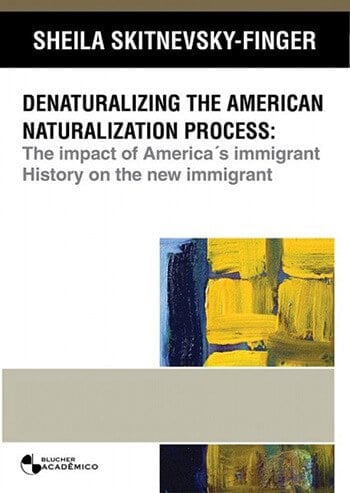The Impact of America's Imigrant History on the New Immigrant
Produto temporariamente indisponível
Sinopse
This theoretical study examines the impact of America´s immigrant on America´s history of immigration. As groundwork, this study explores how Americans dealt with the traumas of their own immigration, for this is believed to be influencing the experience of immigrants coming to America.
The purpose is to explore how historical, social, and political forces have culturally shaped the way the American people have defined and dealt with other immigrants. A review of current works shows that there is significant literature about the psychological ways newcomers deal with the difficultiers of immigration and acculturation.
However, there is scarce literature about the ways Americans see and interact with immigrants. This study reviews authors who analyze the multicultural origins of American culture and society, and then places this knowledge within a post-modern context.
The objective is to deconstruct both, the myth of the intrinsic difference between Americans and others ("us" versus "them"), and the naturalization of those colonizers who denied their immigrant origins, creating a culture unaware of its ancestral genesis.
In conclusion, the study proposes understanding immigration and acculturation beyond the internal process of newcomers. It encourages thinkers and clinicians to consider the external, environmental aspects that continue to influence the process of immigration. A final discussion addresses how this cultural equation is translated into the clinical situation.
Sheila Skitnevsky-Finger
Graduação em Psicologia pela PUC-SP (1989), com especialização em Psicologia Hospitalar pelo Hospital das Clinicas de São Paulo (1990). Doutorado em Psicologia pela Massachusetts School of Professional Psychology (2005).
Saiba maisSumário
Chapter I: Introduction
Chapter II: Immigrant America
The Multicultural Making of America
The primordial waves: immigrant Indians
First European waves of immigration
A different wave: the African slave trade beginning in the early 1600s
Later European immigrants: from 1700 to 1900
Fleeing religious persecution: Irish and Russian Jew immigrants
Labor force in the West coast: Chinese and Other Asian
immigrants in the 1840s
1848: Annexation of the states of California and New Mexico by the U.S
Contemporary Waves of Immigration
What brings new immigrants and what are the consequences of their coming?
Chapter III: Social and Cultural consequences of America´s Immigrant Past
Cultural Mythology: formation and social functioning
What is myth?
How do myths operate?
The construction of the "American national identity" myth
The need for a national unity and identity
"Coloring" the American national identity
How this social construct became a myth
Political uses of the naturalization process
Naturalization Act: Political Applications of the Myth
Social mechanisms of the American Culture
Projection
Otherness
Racial Paradigm
Intersocial pressures: Social Projective Identification
Final Comments
Chapter IV: Psychological consequences and clinical
implications for new immigrants
"Outside in": Specific characteristics on immigrating to the U.S
"Inside out": Identity crisis
Otherness
Racial paradigm
Toward a more comprehensive theory of Psychology of immigration
Historical background
Toward a more comprehensive theory
Specific historical meanings of immigration and immigrants
The historical context when new immigrants arrive
The socio-cultural and socio-economic contexts of each host culture
Personal and interpersonal factors
Clinical implications and recommendations
Cultural Competence with new immigrants
The use of psychoeducation in the clinical work.
Toward a psychoeducation model of intervention
Cultural liaison and educator
Recommendations for further research
Detalhes do livro
- Tipo: Livro Impresso
- ISBN: 9788561209100
- Acabamento: Brochura
- Total de Páginas: 100 páginas
- Ano da Edição: 2008
- Peso: 0.209 kg







